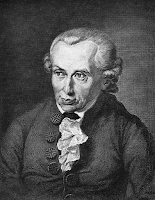Yung Suk Kim
Derrida's deconstruction theory challenges readers to rethink meaning altogether. He argues that there is no absolute unity or coherence in the text, which is an entangled web of various signifiers/significations that defy one single meaning. Derrida coins différance to connote the double meaning of differing and deferring. The signified is not fixed once and for all and must be different because the signifiers are like drops of water in the ocean. Likewise, we should delay meaning forever. Derrida differs from Saussure, who believes that even though there is no one-to-one link between the signifier and the signified, the signified is achieved in a given system of relations.
A common misunderstanding about Derrida is he undermines faith and relativizes truth, promoting "anything goes." That is not true because deconstruction challenges the orthodoxies that subjugate the marginalized or voiceless. It defies "closure" in the text and sees new voices of fairness and justice. A parable is a type of deconstruction literature that resists conventional wisdom and helps readers to see something differently, subverting their world.
As a case in point, we can take 1 Cor 12:27: "You are the body of Christ and individually members of it." The traditional interpretation focuses on the body's metaphorical organism: "You are the members of the body, which is the church, whose head is Christ, and individually, you are members." Here, the body is an organism metaphor, and the achieved meaning is unity in Christ and membership in him. But in fact, there is an alternative reading that resists the tradition. I read the body of Christ as the "Christic body" in the sense that the Corinthians must embody Christ, individually and communally. Here, the body is a metaphor "for a way of living" (for example, see 1 Cor 6:15-20). 1 Cor 6:15 reads: "Do you not know that your bodies are members of Christ? Should I, therefore, take the members of Christ and make them members of a prostitute? Never! " (NRSVue). Paul’s point is the body is for God, which means they must embody Christ in their lives.
If we translate the body of Christ as “Christ-like body,” this use of the genitive case is called an attributive genitive. We see this example in "the body of sin” (Rom 6:6), which we understand as "the sinful body."
The alternative interpretation underscores the ethical union with Christ and the diversity of the community. That is the Corinthians must follow Christ and honor one another. Then, they can maintain a Christ-like community. Christ is not the owner of the church, but its foundation. The point is not mere membership to the church but impregnable participation in Christ and his faith.
*Note: I have argued for an alternative reading of "the body of Christ" through a number of articles and books. My debut book is Christ's Body in Corinth: The Politics of a Metaphor (Fortress, 2008). The most recent book on Paul is How to Read Paul: A Brief Introduction to His Theology, Writings, and World (Fortress, 2021).





